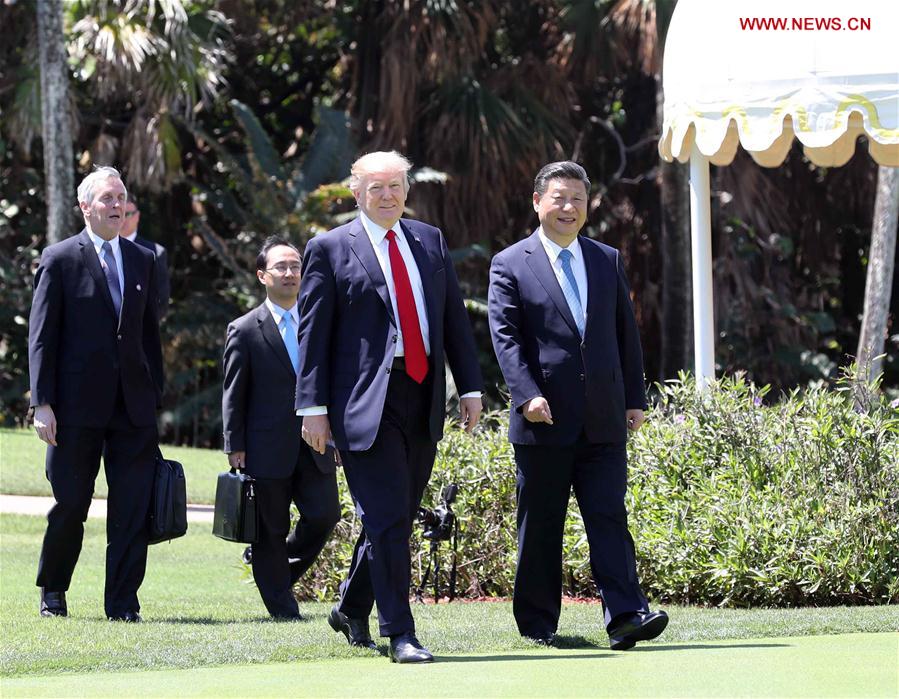


There is a strong assumption that aligning too closely with China is dangerous. The basis of this assumption rests on the belief that the two largest economies are destined to be rivals, competing for power and influence. Those who subscribe to this thinking might argue that it is against the national interest to continue “feeding the dragon,” because the two countries will compete for power for decades to come. Competition outweighs cooperation in the long run, and a buddy-buddy relationship with China is more destructive than beneficial, so the general argument goes. But this old thinking overlooks the realities of China-U.S. relations.
What are the realities? For one, China has no intention of competing with the U.S. for the position of “top superpower.” China seeks to build common security, not exclusive security. Chinese President Xi Jinping has repeatedly stressed that China will never seek hegemony or expansion. As China continues to grow, it might become a core if not the core in its region; or if the U.S. creates a void to fill on the world stage, China might step up to the plate, but that’s not to say that China seeks to directly compete with the U.S. for power and influence. China has long been promoting the principle of a peaceful major-country relationship based on mutual respect and win-win cooperation. Finding ways to continue this time-tested strategy is in the interests of all countries.
The problem is how major countries perceive each other’s intentions. The U.S. side, for example, tends to use old thinking to understand the China-U.S. relationship, but if China is perceived as a major rival, then the bilateral relationship will be negatively affected. “How the United States and China perceive each other’s strategic intentions will directly affect their policies and relations,” Xi said in his speech delivered at the opening ceremony of the sixth round of China-U.S. Strategic and Economic Dialogue and the fifth round of High-Level Consultation on People-to-People Exchange in July 2014.
An exaggerated fear of intentions can itself become a cause of conflict. While the China-U.S. relationship is strong and growing stronger, it is also often troubled by a lack of trust. Major countries worry about each other’s intentions because there is little trust among them. To reduce the level of fear, there needs to be more trust. Getting more buddy-buddy with China can increase the security of both countries as well as the world by raising the level of trust between the two countries.
Recent events show that the level of trust between the two countries has increased, despite some difficulties and obstacles. At the recent meeting between President Xi Jinping and U.S. President Donald Trump, the two leaders agreed to create a four-pronged high-level dialogue mechanism to deal with major issues on security, economic relations, cyber security and law enforcement, and people-to-people exchanges. Both sides hailed the Mar-a-Lago meeting as “positive and fruitful,” as the two leaders increased their mutual understanding and established a personal friendship through face-to-face discussions on issues of mutual concern.
The successful Trump-Xi Summit shows that China-U.S. relations can be managed and that both sides can and will benefit from a stronger relationship. It’s time to stop fearing China’s rise and fully embrace it. Warming up to China is a rational strategy that can maximize mutual benefits and promote long-term peace and stability.

 Award-winning photos show poverty reduction achievements in NE China's Jilin province
Award-winning photos show poverty reduction achievements in NE China's Jilin province People dance to greet advent of New Year in Ameiqituo Town, Guizhou
People dance to greet advent of New Year in Ameiqituo Town, Guizhou Fire brigade in Shanghai holds group wedding
Fire brigade in Shanghai holds group wedding Tourists enjoy ice sculptures in Datan Town, north China
Tourists enjoy ice sculptures in Datan Town, north China Sunset scenery of Dayan Pagoda in Xi'an
Sunset scenery of Dayan Pagoda in Xi'an Tourists have fun at scenic spot in Nanlong Town, NW China
Tourists have fun at scenic spot in Nanlong Town, NW China Harbin attracts tourists by making best use of ice in winter
Harbin attracts tourists by making best use of ice in winter In pics: FIS Alpine Ski Women's World Cup Slalom
In pics: FIS Alpine Ski Women's World Cup Slalom Black-necked cranes rest at reservoir in Lhunzhub County, Lhasa
Black-necked cranes rest at reservoir in Lhunzhub County, Lhasa China's FAST telescope will be available to foreign scientists in April
China's FAST telescope will be available to foreign scientists in April